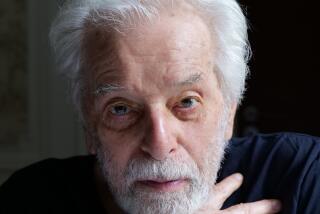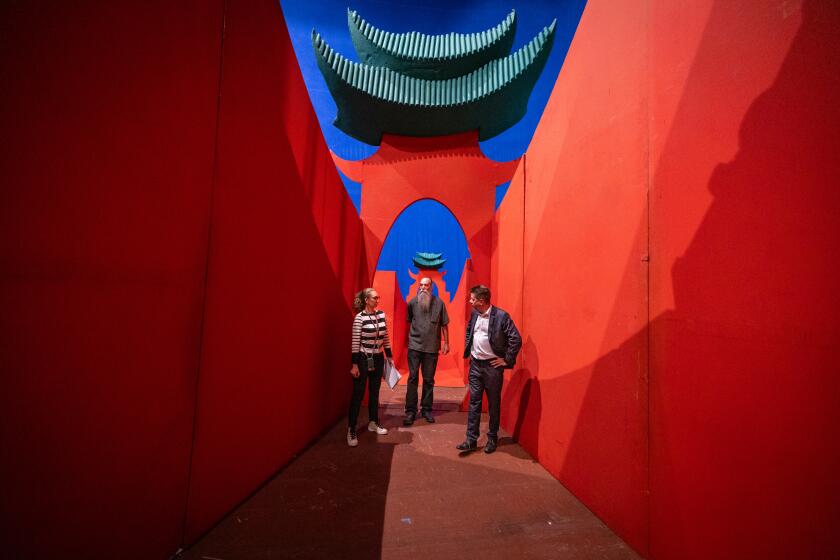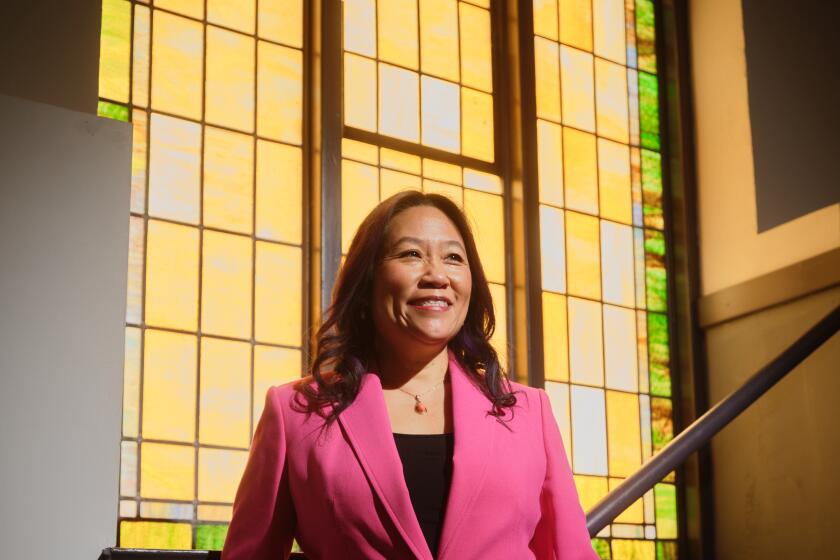Brazil’s heart beats at the Bowl
Yo-Yo Ma’s done it again. The celebrated cellist, ever in search of new challenges, has discovered an especially attractive destination in the music of Brazil. On Sunday night, he presented one of the most entertaining events in the Hollywood Bowl’s uneven summer world music series, tapping much of the material from his new album, “Obrigado Brazil.”
Characteristically, Ma focused on the heart of the music, seeking and finding selections that embraced the soaring melodies and infectious rhythms that are essential elements in all of Brazil’s extraordinarily diverse musical expressions. The concert gathered works from Heitor Villa Lobos, Pixinguinha, Egberto Gismonti, Antonio Carlos Jobim, Waldir Azevedo and Ary Barroso, and from Argentine composer Astor Piazzolla, as well as participants Paquito D’Rivera and the guitar-playing Assad brothers.
The program’s relaxed and engaging atmosphere was reflected in the presentation, in which the eight musicians performed in a variety of configurations, from duos and trios to full ensembles. As each unit played, the musicians who weren’t participating sat comfortably on couches on either side of the instrumental setups. The result was a kind of living-room milieu, drawing the large audience of more than 16,000 listeners into an intimate, surprisingly cozy connection with the performance.
That connection was further enhanced by the empathic interaction between the players, who tossed ideas and glances back and forth with spirited enthusiasm.
The Assad brothers’ great versatility enlivened selections ranging from Villa Lobos to Pixinguinha. Cuban clarinetist D’Rivera’s playing was a marvel, playfully moving from jazz to high-spirited musical fun. Pianist Kathryn Stott, asked to cover classical phrasing, bossa nova and jazz rhythms, did it all with style and panache. Bassist Nilson Matta and percussionist Cyro Baptista provided buoyant rhythm support. And Ma, as always, served brilliantly and disarmingly as leader, soloist and accompanist.
Perhaps best of all, singer-guitarist Rosa Passos’ sweet-voiced renderings of Jobim’s “O Amor Em Paz,” “Aguas De Marco” and “So Danco Samba” were marvelous updatings of classic bossa nova, superbly demonstrating the subtle interplay between voice and guitar that is the foundation of this enduringly appealing genre.
More to Read
The biggest entertainment stories
Get our big stories about Hollywood, film, television, music, arts, culture and more right in your inbox as soon as they publish.
You may occasionally receive promotional content from the Los Angeles Times.






